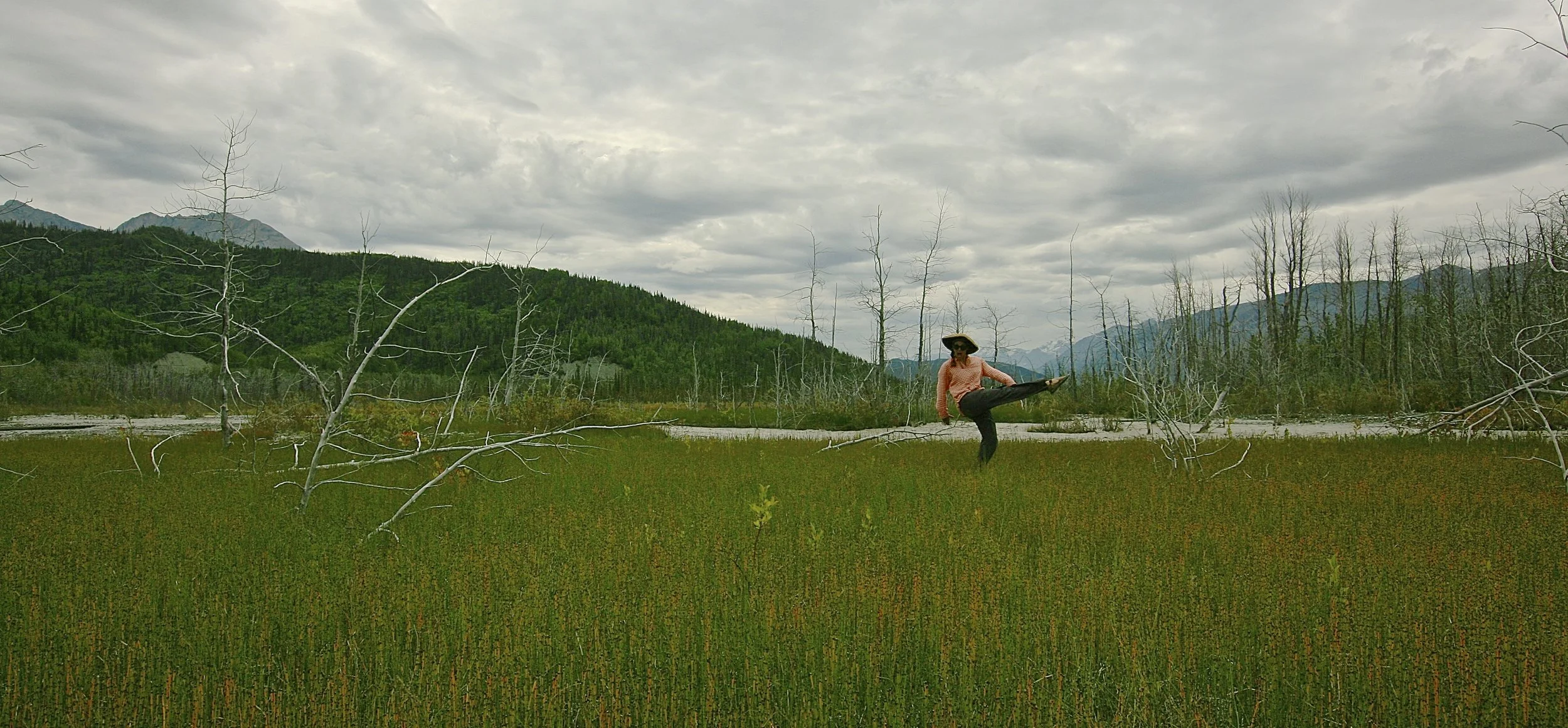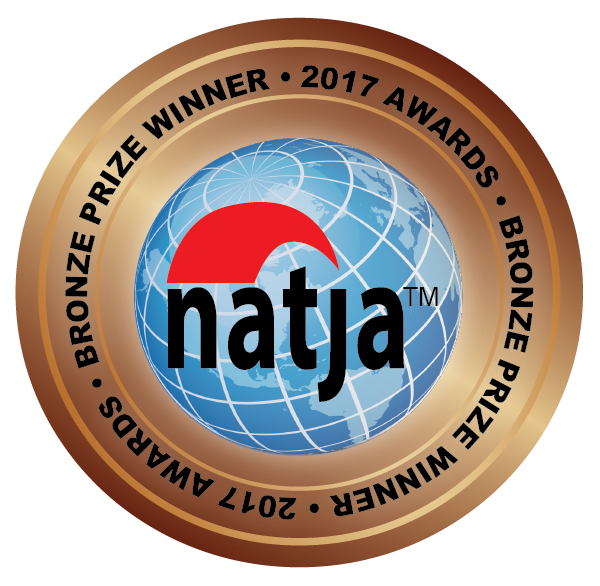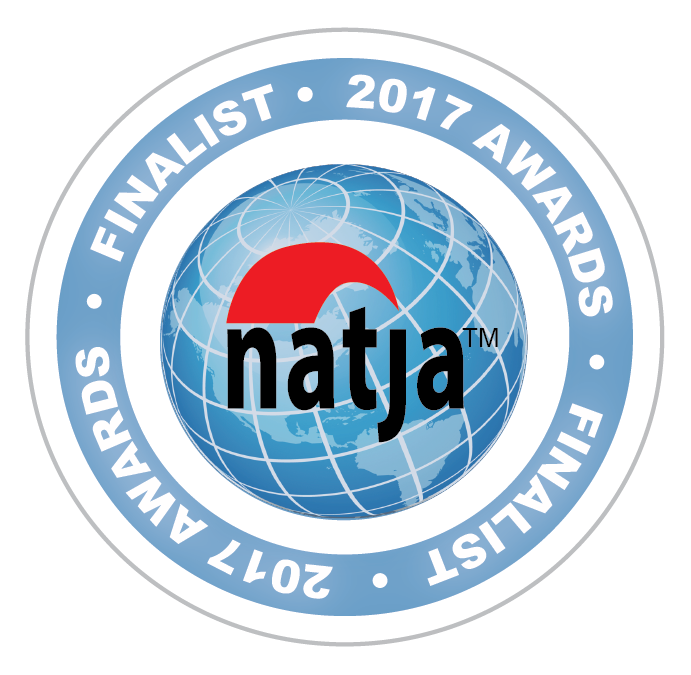I've never been so cold in my life. It's January in Yellowstone National Park and we're on the prowl for the park's famously elusive wolves. My watch lights up with the time: not even 6 a.m. But our guide insists that the earlier the better so we're up before dawn, packed into a van and crossing our frozen fingers that our efforts will pay off. He spots a National Geographic photographer he knows just pulling over ahead of us. If anyone knows where the wolves are, it's this guy. Our driver pulls over and I leave the warmth of the van. Our guide puts his finger to his mouth in the universal "be quiet" gesture. The only sound is our boots on the frozen snow...
We stop. The photographer directs the camera on his tripod and suddenly we see them too. Three spectacular animals making their way over the crest of a hill. A black one, a white one and a grey one. We're stunned by their raw beauty. As if art directed, the three lie down just as the sun begins to cast pink and yellow over the ground. I'm dumbstruck. We all are.
And then, in the slightest whisper, our guide asks: Hear that? We listen. There is, literally, not a sound. When, he asks us, was the last time you heard nothing?
Silence is increasingly under siege in our noisy world. Whether it's flight paths over sacred forests, the hum of appliances in a remote cottage or our phones vibrating 24-7, hearing nothing is rare. There is no single spot on the planet set aside to be protected from noise pollution. Even as citizen groups around the world tackle noise pollution, silent retreats become more trendy and research piles up on the benefits of silence, let me ask: when was the last time you heard nothing?
It was 25 years ago for Tony Armstrong who was on an island in the Arctic Ocean.
[00:00:15] "We had just finished shooting a documentary on two explorers who had skied to the north pole."
While the rest of the crew held back, Armstrong took some time to walk to the top of a nearby hill. At the top, he stood, able to hear the sound of his own heartbeat thumping from the exertion of lugging his equipment up the hill. What he couldn't hear but what could hear him, were two polar bears who'd been tracking the crew. The story ends happily. But what has stayed with Armstrong isn't how close he came to being someone else's lunch, it was the absolute lack of sound.
[00:04:30] "We all commented on it. That's probably the quietest I've ever experienced."
Gordon Hempton seeks out silence on a regular basis. Hempton is an acoustic audiologist who has dedicated much of his life to finding the world's quiet places. Silence, he says, is something we’re in danger of losing even as science begins to understand the value of it to both our mental and physical health. Hempton calls it a basic human need. And it’s not just monks and librarians who back him up.
The World Health Organization cites a laundry list of ailments that can be the product of our din-filled days...and nights, including “cardiovascular and psycho-physiological effects...annoyance responses and changes in social behaviour."
Researchers in Italy and the UK, exploring the effect of various types of music on our bodies, discovered something that surprised them. It wasn't the type of music that most dramatically lowered our heart rates, blood pressure and breathing. It was the pauses between the music.
Matt Mikkelsen has helped create a film about called Being Hear (H-E-A-R) that focuses on Gordon Hempton and his odyssey to seek out the world's silent spaces.
Hempton found a silent paradise in the Hoh Rainforest in Washington State's Olympic National Park, the quietest place in America and the impetus to lobby U.S. Congress to preserve what he calls "one square inch of silence" within this space. Silence, says Hempton, is one of the most threatened resources on the planet.
Echoing Hempton's words, Mikkelsen calls silence "not the absence of anything but the presence of everything." I spoke with Mikkelsen by phone about silence, my profound experience in Yellowstone, and the value in seeking these experiences.
[00:12:09] "I've heard so many stories from people like yours that when they visit a naturally silent space, it becomes very very clear why we need to protect these areas. It's almost a sanity thing for us..."
In Mikkelsen's film, Mikkelsen quoted Hempton saying "We cannot think truly originally and be ourselves without quiet. And that is the gift of quiet—that it allows the faint meanings of sound to gain its original importance."
Silence is a bit of a misnomer. Ask anyone who walks in the woods and they'll tell you it can often be noisy. Birds, animals, water rushing over rocks... Silence, in the way that Hempton and Mikkelsen use the term, is the absence of human-generated noise.
[00:10:48] (really tight intro): It's really important for animals...to have an acoustically, a quieter environment, when I say quiet I mean just no noise pollution, no human created noise pollution because as soon as there's noise pollution in an area, birds and other animals needs to change the way they communicate because it's not as effective. Lots of studies that show the impact of noise on the communication of animals...we've seen it with whales, different species of birds, noise impacts the ability of these animals to live peacefully and be able to communicate well.
Of course, it isn't just the wildlife that benefits from the absence of noise pollution. Beyond the myriad studies showing that silence improves our mental health, our physical health, our productivity, as Hempton says, silence allows "to think. And then to go beyond thinking."
It has been eight years since that morning in Yellowstone National Park when I was struck by silence. It's a moment that has stayed with me, as vivid as the memory of those three seductive wolves. And while I might not have experienced silence as profoundly since then, I have sought it out more frequently. I turn the music off sometimes when I'm running. I pay more attention to the ambient sounds of the natural world—the birdsong in the woods, the wind in the poplar leaves outside my cottage window, the roar of the Lake Huron waves.
As Gordon Hempton puts it, “Silence cannot be imagined. To experience the soul-swelling wonder of silence, you must hear it.”





